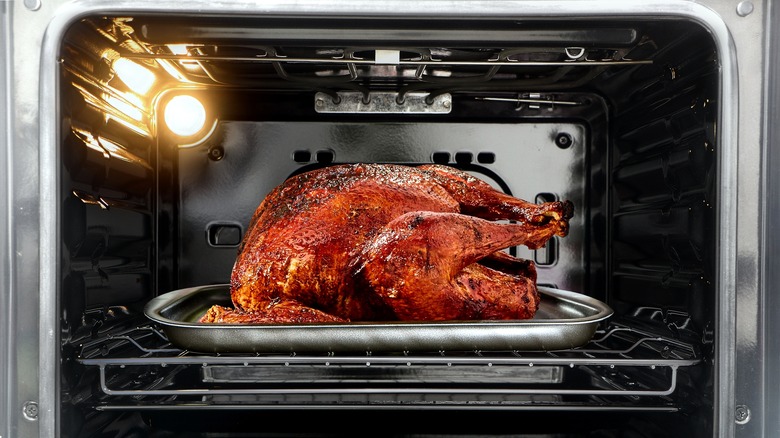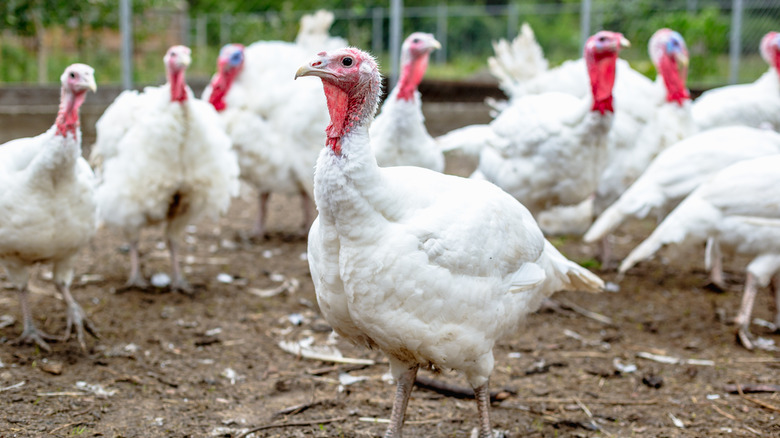Thanksgiving Turkey Prices Are Skyrocketing For A Big Reason
Until recently, the poultry world had been enjoying a brief period of relative normalcy after months of rampant inflation jacked up the prices of broiler meat (aka chicken) in grocery stores nationwide. Unlike many other common food products that are still breaking the bank due to decreased production resources and high demand, chicken actually seems to be on the mend. A recent outlook report from the U.S. Department of Agriculture (USDA) shows that chicken production reached nearly 4 million pounds in June of 2022. Per the USDA, that's "nearly level" with chicken's pre-inflation production level in June 2021.
A host of factors were at play when chicken inflation was at its highest. The cost of chicken feed was through the roof, a particularly cold winter killed millions of chickens on Texas farms that many parts of the country rely on for broiler meat (per Poultry World), and an avian flu outbreak did away with 22 million birds, per Reuters. Most chicken farms may still be in the clear, but another member of the poultry family, the turkey, has been hit with a similar pandemic. With Thanksgiving around the corner, that means you might have to shell out more than you're used to on your turkey day centerpiece.
Avian flu has come for the turkeys
According to an October 2022 USDA report, turkey production is seriously low due to a Highly Pathogenic Avian Influenza (HPAI) outbreak that has killed more than 6 million turkeys, leaving an "outsize impact on the industry." While the price of turkeys is expected to level out sometime in 2023, current turkey prices will cause many Thanksgiving dinner budgets to spill over. Per a Texas A&M University study, wholesale turkey prices in October 2022 are more than 40 cents higher than last year's peak price, clocking in at $1.79 per pound.
Many households are sticking to tradition despite the high cost of turkey. According to Butterball's annual outlook report, 85% of participants that celebrate Thanksgiving are planning on serving turkey this year. An even higher percentage plans to buy either the same size turkey or one that's even larger than last year's.
The flu is poised to be "the worst ever recorded," says The Washington Post. "[The flu] definitely did impact our availability and supply, and we won't have everything for everyone like we normally do; we just won't," said California turkey farmer Heidi Diestel. California State Veterinarian Annette Jones told the outlet that turkeys "seem uniquely vulnerable" to HPAI, which is spread by wild birds during periods of migration. Since so many turkeys spend their days in outdoor pastures, Jones says they might be more likely to get infected by the eggs and droppings of these visiting flocks.

